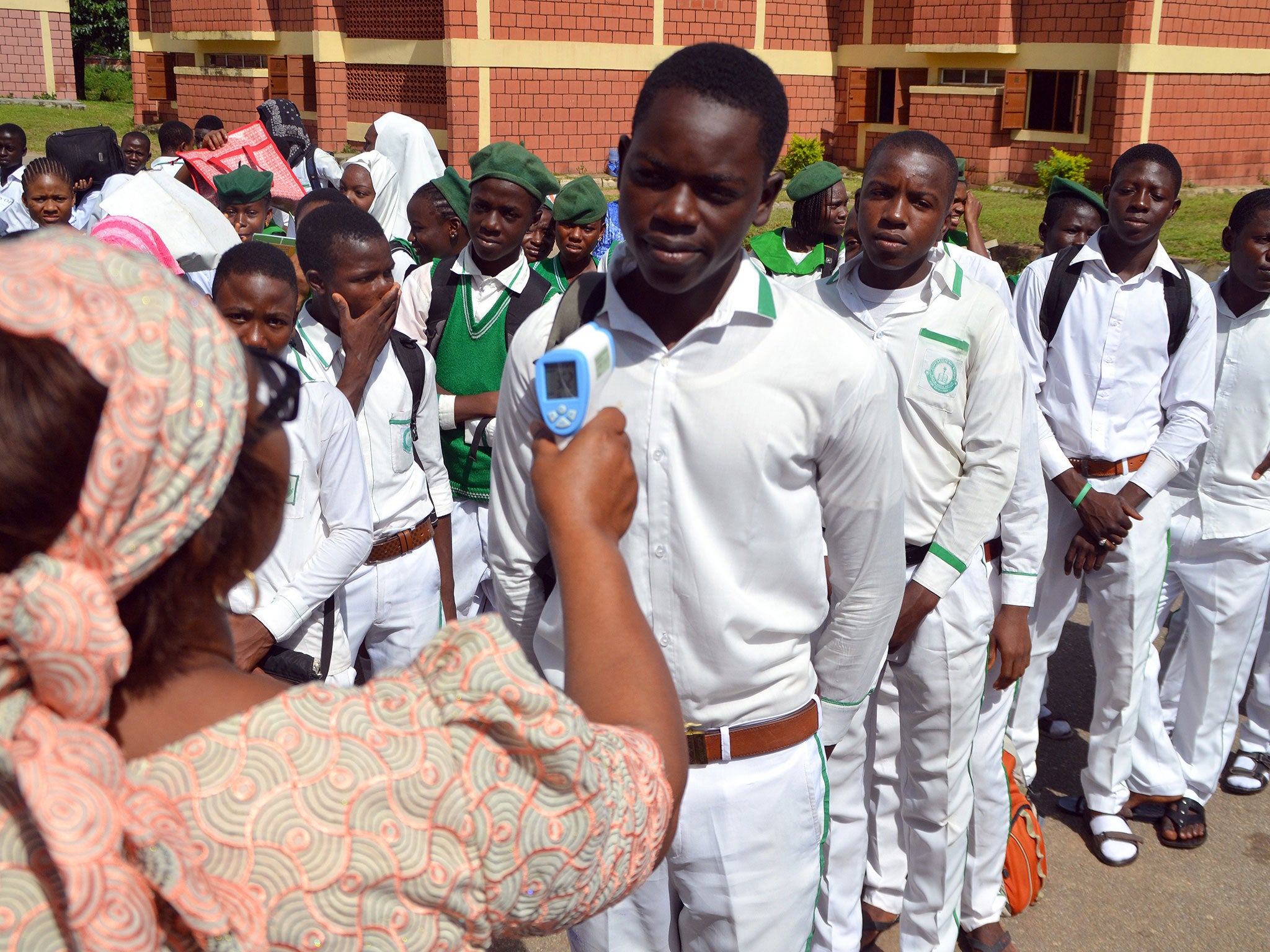Ebola outbreak: Nigeria is 'a week away' from beating virus
The country contained the disease after 20 cases and eight deaths

Your support helps us to tell the story
From reproductive rights to climate change to Big Tech, The Independent is on the ground when the story is developing. Whether it's investigating the financials of Elon Musk's pro-Trump PAC or producing our latest documentary, 'The A Word', which shines a light on the American women fighting for reproductive rights, we know how important it is to parse out the facts from the messaging.
At such a critical moment in US history, we need reporters on the ground. Your donation allows us to keep sending journalists to speak to both sides of the story.
The Independent is trusted by Americans across the entire political spectrum. And unlike many other quality news outlets, we choose not to lock Americans out of our reporting and analysis with paywalls. We believe quality journalism should be available to everyone, paid for by those who can afford it.
Your support makes all the difference.Nigeria will be officially declared Ebola-free in less than a week after containing the disease that has killed more than 4,000 people.
Eight of the 20 people infected in the country died and there have been no new cases confirmed since 8 September.
It means it is less than a week short of the 42-day period needed by the World Health Organisation (WHO) to confirm Nigeria has quashed its Ebola outbreak.
President Goodluck Jonathan was premature when he told the UN General Assembly “Nigeria is Ebola free” last month but his government’s response has been watched around the world.
The outbreak started in July, when a Liberian-American development consultant, Patrick Sawyer, collapsed in the arrivals hall of Lagos airport.
By the time he was diagnosed with Ebola, he had exposed his 72 fellow plane passengers, the airport and hospital patients to the highly infectious disease.
The conditions seemed ripe for it to spread through the densely-populated city of 21 million people and beyond, through the workers travelling in and out of Lagos every day and international travellers flying from its airport around the world.
But Nigeria was ready – Ebola had already killed more than 400 people and was spreading through Sierra Leone, Guinea and Liberia.
Knowing the potential of Mr Sawyer’s symptoms, staff at the clinic caring for him refused to let him leave despite alleged pressure from the Liberian ambassador.
Staff at the First Consultants Medical Centre paid a high price for their courage – 11 workers and their family members contracted Ebola and four died.
Dr Benjamin Ohiaeri, the director of the clinic, told a Nigerian newspaper two doctors with a combined 37 years of service were killed as well as a nurse who was raising her four children alone after her husband died.
The fourth staff member who died had started working at the clinic on the day Mr Sawyer was brought in. She was two months pregnant at the time.
As the clinic battled to treat Mr Sawyer, who later died, and its own staff, Nigerian authorities started tracing anyone who had contact with the Ebola patients.

An emergency presidential decree enabled officials to access mobile phone records and use law enforcement agencies where necessary to track down people at risk.
Almost 900 people - 362 in Lagos and 529 in Port Harcourt – were traced and monitored for symptoms for 21 days to ensure they had not contracted Ebola.
Every one of those people had to provide health authorities with updates about their health twice a day, often through methods like text messaging.
Anyone who didn't feel well or failed to respond was checked on, either through a neighbourhood network or health workers.
Nigeria’s Port Health Services worked with airlines to ensure outbreak notifications were made and the Ministry of Health activated an Ebola Incident Management Centre to lead the national response.
The Lagos state government, federal institutions, the private sector and global non-governmental organisations were all drawn in to control the outbreak and the operation seems to have been a success.
Dr Tom Frieden, director of the US Centers for Disease Control and Prevention, praised Nigeria’s response.
“Although Nigeria isn't completely out of the woods, their extensive response to a single case of Ebola shows that control is possible with rapid, focused interventions,” he said.
Join our commenting forum
Join thought-provoking conversations, follow other Independent readers and see their replies
Comments